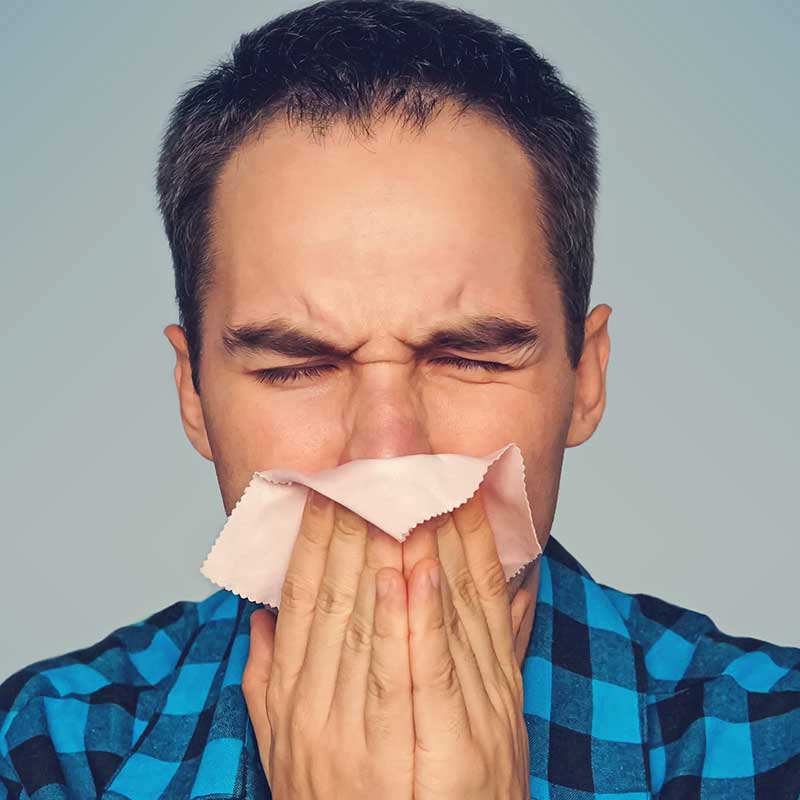Is it a Cold, Allergic Rhinitis, or Sinus Polyps?
A constantly stopped up nose and sinus congestion can also be caused by sinus polyps. These painless, soft, benign, grape-like growths hang on the lining of your sinuses or nasal passages and stem from chronic inflammatory responses like allergies, infections, and certain pharmaceuticals. Nose polyp symptoms mimic chronic allergic rhinitis or sinusitis. Yet even the best nasal decongestant at the drugstore won’t restore easy breathing if nasal polyps are the culprit, and without proper treatment, sinus polyps can cause further complications. In some cases, sinus polyp surgery may be necessary. If your allergy medications or decongestants are not solving the problem, it’s important to schedule an appointment with Jersey Shore ENT Specialists for a closer look at what is causing your nasal congestion.
A Stuffy Nose Is Nothing to Sneeze At
When you can’t breathe, you can’t sleep. With a sinus headache or migraine, you can’t think. You can’t talk or sleep if you are constantly coughing and choking on post-nasal drip. Congestion can clog up your ears, making it hard to hear. If you can’t smell, you can’t taste. This is no way to live.
If you are all too familiar with nasal congestion, for whatever reason, it is important to see your Ear, Nose, and Throat doctor (ENT) for proper diagnosis of the causes behind your nasal congestion so that you can get the right sinus treatment. It is true that home remedies can give you temporary relief and even ameliorate minor nasal irritations. But if you have chronic congestion, allergies, sinus infections or nose polyps, Jersey Shore ENT Specialists will be able to diagnose the core reason behind your suffering and recommend the right treatment for you.
Additionally, if you have small children with any of these problems, it is even more important to have them seen by an ENT because many over-the-counter or home child and infant decongestant remedies have safety issues.
Children with frequent nasal congestion, colds and allergies may also struggle with ear infections that can adversely affect their hearing and speech development. An ENT experienced in treating pediatric cases can help you find the best nasal decongestant kids, toddlers, and infants can use safely.
